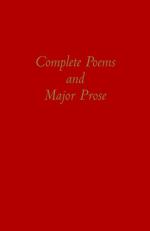|
This section contains 260 words (approx. 1 page at 400 words per page) |

|
On the Late Massacre in Piedmont Summary & Study Guide Description
On the Late Massacre in Piedmont Summary & Study Guide includes comprehensive information and analysis to help you understand the book. This study guide contains the following sections:
This detailed literature summary also contains Quotes and a Free Quiz on On the Late Massacre in Piedmont by John Milton.
The following version of this poem was used to create this guide: Milton, John. "On the Late Massacre in Piedmont." Saylor.Org. https://resources.saylor.org/wwwresources/archived/site/wp-content/uploads/2012/08/ENGL402-Milton-Sonnet-18.pdf.
Note that all parenthetical citations within the guide refer to the lines of the poem from which the quotations are taken.
John Milton was born in 1608 and lived during a tumultuous time in English history, when political and religious changes were common and often accompanied by violence. His father was a successful composer, which paid for Milton's education. He began writing poetry as a teenager, though he attended Cambridge with the intention of becoming an Anglican priest. However, he struggled to adapt the rigid university curriculum, and began to pursue writing more seriously instead. He studied and traveled widely, publishing both poetry and political tracts at this time.
Milton was a firm supporter of Christian principals – though his exact beliefs remain a source of fierce debate among scholars – including individual freedom and a republican form of government for England, a dangerous political position to occupy while the English monarchy still reigned. He had four daughters, some of whom helped him transcribe his poetry after he went blind. He was completely blind by the time he wrote his magnum opus, Paradise Lost. Paradise Lost solidified Milton's reputation as one of the greatest poets of the English language. This brief sonnet is one of Milton's many poems interested in Christian themes. It is an elegy to those who were killed in a 1655 Easter massacre.
Read more from the Study Guide
|
This section contains 260 words (approx. 1 page at 400 words per page) |

|



